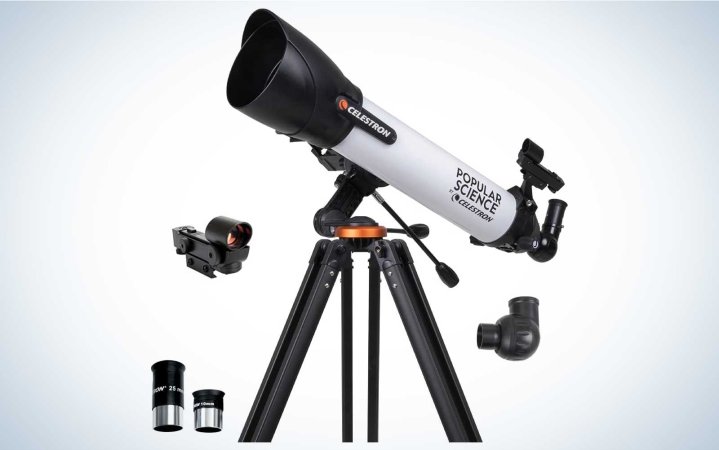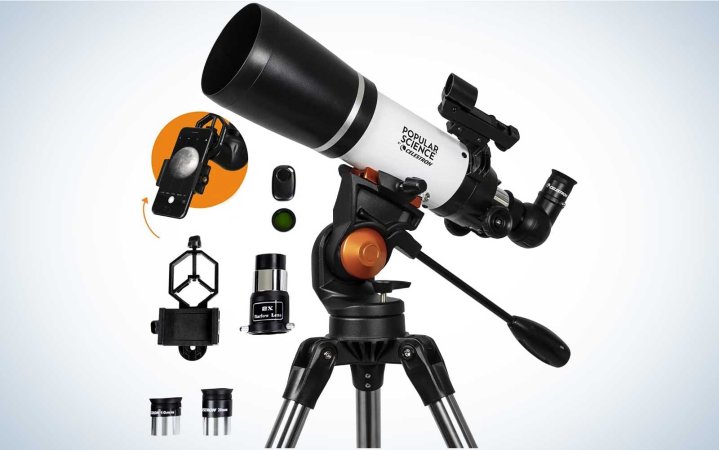

We may earn revenue from the products available on this page and participate in affiliate programs. Learn more ›
We had a great time checking out the Oct. 14 solar eclipse, but the next one that’s visible here in the U.S. won’t be until April 2024. Lots of interesting things will be happening in the sky between then and now, and you’ll need a good telescope to check them out. Right now, Amazon has substantial discounts on Celestron x PopSci telescopes that were already a solid value. There are three different options currently available depending on your star-gazing needs. Then, when the next eclipse rolls around, you can buy a dedicated solar eclipse filter and get a better look than all those jealous people with their (still pretty cool) pinhole cameras.
Popular Science StarSense Explorer DX 5” Smartphone App-Enabled Telescope $498 (was $599)
Popular Science StarSense Explorer DX 5” Smartphone App-Enabled Telescope
This is the biggest and most powerful scope in the Celestron x PopSci lineup, and it’s just over $100 off right now. Its five-inch aperture and high-end coatings provide a clear, low-aberration image of the night sky. More importantly, it’s compatible with the Celestron app, which can help you find cool things going on in the sky above you and then help you locate them with your scope so you don’t have to go blindly hunting around the heavens. That’s especially important with a scope this powerful.
Popular Science StarSense Explorer DX 100AZ Smartphone App-Enabled Telescope $269 (was $349)
Popular Science StarSense Explorer DX 100AZ Smartphone App-Enabled Telescope
This 100mm refractor provides a very solid field of view for astrophotography. It’s light and easy to move around, and it’s compatible again with Celestron’s app to guide you around the night sky. Plus, the integrated hood helps combat errant light from hitting the front element of the scope and causing image-ruining glare.
Popular Science AstroMaster 80mm – Portable Refractor Telescope $151 (was $239)
POPULAR SCIENCE AstroMaster 80mm – Portable Refractor Telescope
This model is meant specifically for beginners, and the price makes it very appealing with this discount. The short tub provides a relatively loose view of celestial objects, so beginners won’t get frustrated trying to find specific areas. Plus, the short tube design keeps it small and light, so this is a great scope to keep as a backup for quick jaunts out into dark sky country without lots of gear.
EDITOR’S NOTE: Popular Science has teamed up with Celestron on a line of products. We do earn a commission on its sales—all of which helps power Popular Science.



